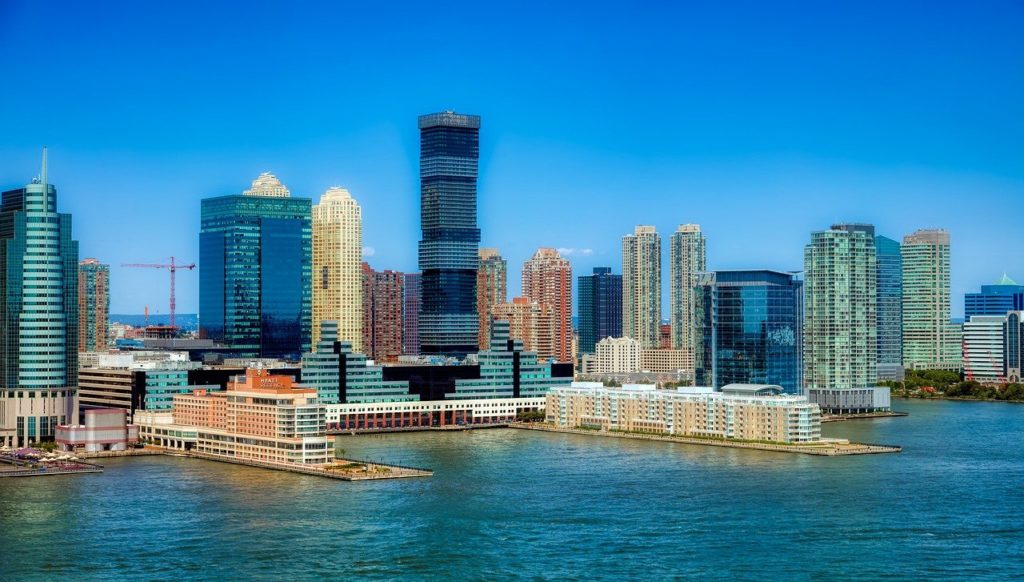In 2017, New Jersey generated 23,377,508 tons of waste, of which about 60% was recycled—a figure that the Garden State has reason to be proud of when compared to other cities and states in the US.
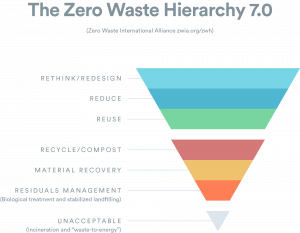
However, that figure falls to just 40% when looking at municipal solid waste (MSW) which is far short of the 70% the state was aiming for in their 2008 Global Warming Response Act Recommendation Report—the same report in which a zero waste New Jersey goal was first set.
But while New Jersey may not have hit its ambitious 70% target, that doesn’t mean that there hasn’t been significant progress towards waste reduction and low-waste initiatives across the state. According to the report:
“The State’s ultimate goal is zero waste production by 2050, whereby all products and packaging entering the MSW stream must either be fully biodegradable, refillable, or reusable a minimum number of times, and then, recyclable in an economically sustainable manner.”
With this goal in mind, New Jersey, like neighboring New York, has begun to lay out a variety of initiatives designed to reduce waste, promoting zero-waste lifestyles for both consumers and businesses. Here, we look at exactly what the state is doing to push a range of programs following the zero-waste hierarchy.
Food Waste Recycling Act (2020)
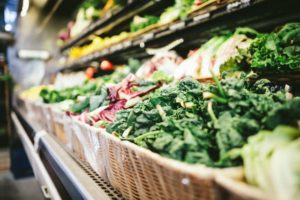
In recent years, there has been an increased focus on food waste and its impact on both the environment and the number of resources it consumes during production. It’s the single largest component in US landfills and makes up roughly 22% of solid waste in New Jersey. It’s also, arguably, the easiest of waste streams to deal with, with waste reduction possible at all stages of the production, distribution, and consumption chain.
To help combat food waste across the state, New Jersey introduced the Food Waste Recycling Act in 2020, set to go into effect in 2021, which “requires large food waste generators to separate and recycle food waste.” These large food waste generators include:
- Wholesalers
- Food processors
- Supermarkets
- Institutions
- Restaurants
- Other operations that produce at least 52 tons of food waste per year
This means that food waste will be diverted away from incinerators and landfills and instead be sent to more sustainable alternatives such as composting and anaerobic digestion facilities. One notable exclusion within the act was the reduction of edible food waste, with no provisions for the donation or reuse of organic materials to organizations or individuals.
Additionally, while this food waste initiative shows a promising step towards a zero-waste New Jersey, there has been significant criticism for the act including biogas as a Class 1 renewable energy, despite the pollution produced when used as fuel. As part of the truly zero-waste approach, it’s generally considered that New Jersey could do more to reduce food waste higher up the hierarchy.
New Jersey Zero-Waste Plastic Bag Ban
Passed in late 2020, but to be implemented in May 2022, this legislation was introduced in New Jersey to ban the use of single-use plastic or paper bags in grocery stores and foodservice businesses across the entire state. It aims to cut down on plastic pollution and promote the use of alternatives such as compostable or reusable bags.
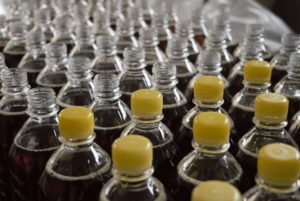
Source: rts.com
This same legislation will also ban disposable polystyrene-foam food containers and cups across New Jersey from 2022, as well as stopping foodservice businesses from providing single-use plastic straws (unless requested) beginning in November 2021.
Of course, with the ban not being fully comprehensive for up to two years after its implementation (meaning 2024 at the earliest) it might still be some time before we see a plastic-free New Jersey, but it is certainly a move in the right direction and is significantly ahead of other states where plastic bans are being actively opposed.
While the state government is slowly catching on to the influence it can have on waste reduction and resource conservation, in addition to legislation and laws in New Jersey, there are numerous private projects pushing forward zero-waste initiatives.
Private Initiatives for a Zero-Waste New Jersey
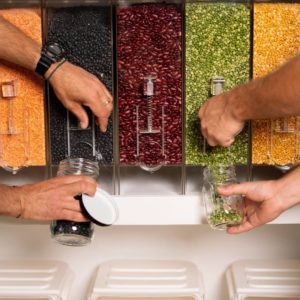
Source: plantbasemarket.com
One notable zero-waste store in New Jersey is the Zero to 180 Market in Morristown. Not because it is the largest or offers the widest range of products, but because it services a town of fewer than twenty thousand people—a clear indicator that zero waste attitudes and the private ventures they support are no longer limited to big-city boroughs. Zero to 180 Market offers bulk foods that can be purchased using customers’ own containers, cutting down packaging waste. Additionally, zero-waste personal care products such as toothbrushes, toothpaste, shampoo bars, and natural sponges are also available, making this zero-waste store much more than your average dry-goods refillery and food store.
The good news is, this is by no means the only zero-waste store in New Jersey, with many bulk food and package-free shops popping up across the state. These include:
- Plant Base in Jersey City, which is a “fully vegan and package-free store” with a huge range of products from food and drinks to clothes and jewelry.
- Good Bottle Refill Shop in Maplewood, which may be the first refill shop in New Jersey. They have a heavy focus on cutting back the plastic waste generated from soaps, conditioners, lotions, laundry detergents, and other products throughout the home.
- Sustainable Haus Mercantile in Summit offers a whole host of zero-waste products but also has a great events catalog, which helps set it apart from other zero-waste stores in New Jersey. The store, for example, offers knife/blade sharpening workshops, promoting zero-waste concepts around reuse and waste reduction, delivering consumers the skills needed to cut down consumption on home goods, and other tools.
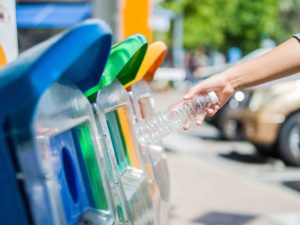
New Jersey WasteWise Business Network
Another project that is helping drive zero waste in New Jersey is the WasteWise Business Network. This is a free educational program for businesses, organizations, and entrepreneurs to learn about waste reduction, recycling, and recycled product procurement. It teaches the environmental and economic benefits of switching to greener options through educational meetings, networking and publicity events, and more.
Waste in New Jersey
Sustainable Jersey City (SJC) is an educational organization empowering and engaging those in the community to create the greenest, most sustainable city possible. Their work is split into three major categories: Emissions Reduction, Green Infrastructure, and Waste Streams. Projects they’ve worked on include:
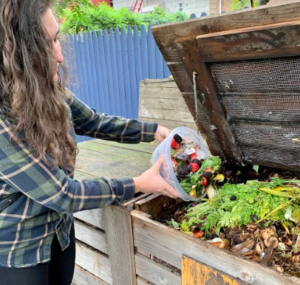
Source: sustainablejc.org
- The Community Gardens Network project, in which they supported anyone running community gardens with assistance and information on topics such as composting and permaculture to increase their productivity and sustainability. There are currently 17 community gardens throughout Jersey City.
- Good Food Now! is another project from SJC, this time with a focus on educational and community initiatives that help promote access to healthy, local foods. This includes the use of the community gardens mentioned above as well as food rescue.
Food rescue involves recovering food from restaurants, corporate cafeterias, and catering companies that would otherwise end up as food waste. This is then delivered to those who need it.
These are just a few of the governmental, private, and community-led projects and initiatives that are currently working towards a zero waste New Jersey, and in the coming years, we are sure to see many more as the state continues to address its ever-growing waste issues.
For more information about zero waste, subscribe to zerowaste.com or follow the blog. For further insight into how your business can work towards zero waste, arrange a chat with one of our TRUE Advisors.

